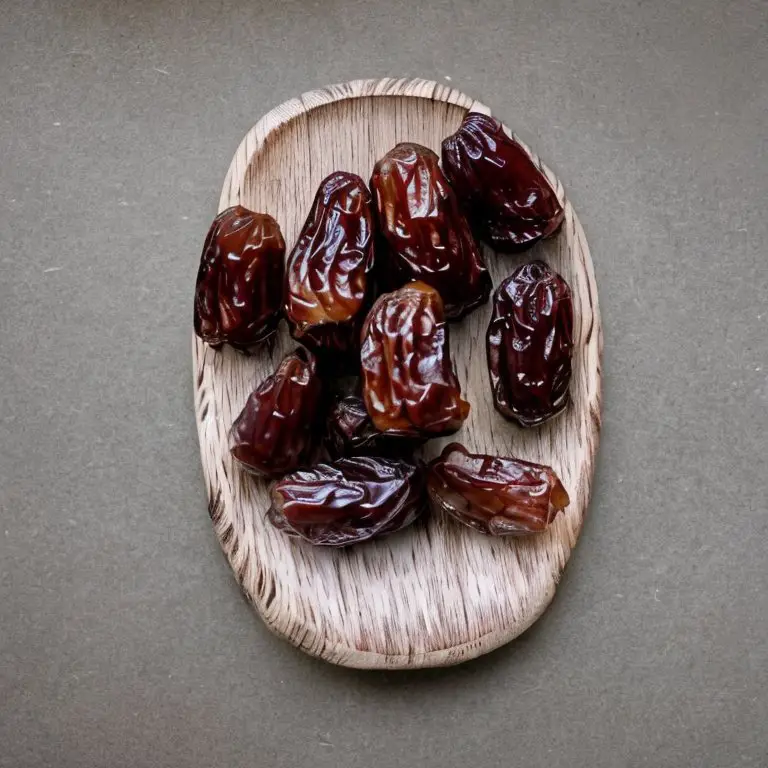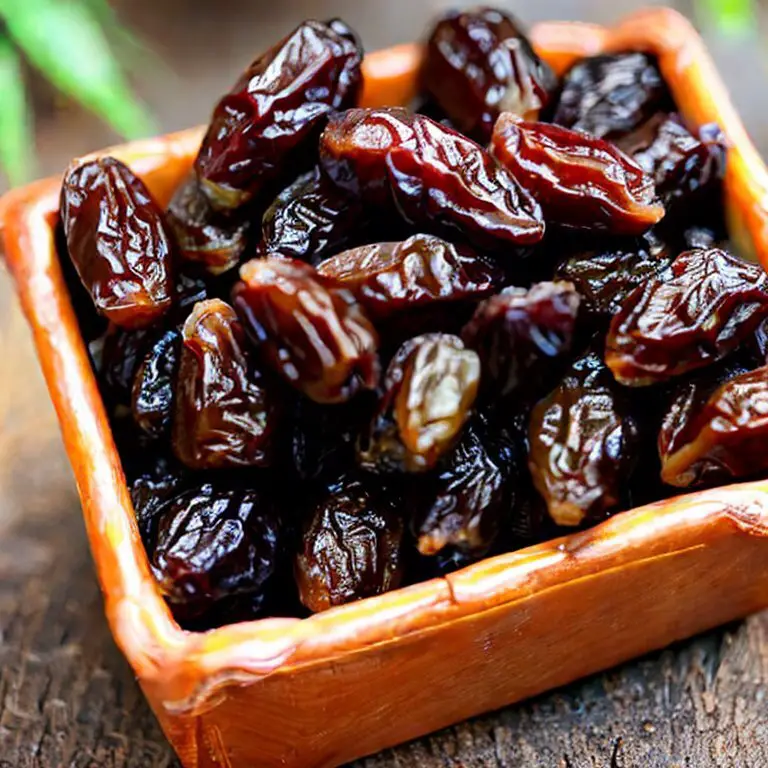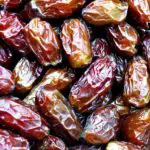When it comes to healthy eating, it’s common for people to wonder which foods are fattening and which aren’t. Dates, in particular, are often a topic of discussion when it comes to weight management. (See Dates for Weight Gain or Loss?)

Some people swear by them as a healthy snack, while others avoid them because they believe they are too high in calories. So, are dates fattening? Let’s take a closer look.

Table of Contents
- What are dates?
- Calories in dates
- Nutrients in dates
- Health benefits of dates
- Are dates a healthy snack?
- Conclusion
What are dates?
Dates are a fruit that comes from the date palm tree. They are often dried and sold as a sweet snack, but they can also be eaten fresh. Dates are high in natural sugars, which gives them their sweet flavor. They are also rich in fiber, potassium, magnesium, and other vitamins and minerals. (Dates come in a variety of types, see Types of Dates to learn more about these different types of dates.)
Calories in dates
One reason why people might avoid dates is because they are relatively high in calories. A single date contains around 66 calories (depending on the type of date), which means that a handful of dates can add up quickly. (Medjool dates are the highest in calories)
However, it’s worth noting that dates are also quite filling, thanks to their fiber content. This means that you might be less likely to overeat if you snack on dates, compared to snacking on foods that are lower in fiber.
Additionally, the calorie content of dates can vary depending on whether they are fresh or dried. Fresh dates are lower in calories than dried dates, because the drying process removes some of the water content. This means that a serving of dried dates will be smaller than a serving of fresh dates, but will still contain roughly the same number of calories.
Nutrients in dates
While dates are relatively high in calories, they are also packed with nutrients. As mentioned earlier, dates are a good source of fiber, potassium, and magnesium. They also contain smaller amounts of other vitamins and minerals, such as vitamin B6, niacin, calcium, and iron.
The fiber content in dates is particularly noteworthy. Fiber is an important nutrient for weight management, because it helps you feel full and satisfied after eating. It also helps regulate blood sugar levels, which can be beneficial for people with diabetes or those trying to manage their weight. A 100-gram serving of dates contains around 7 grams of fiber, which is about 28% of the daily recommended intake for adults.
Health benefits of dates
Dates have been consumed for thousands of years and have been used in traditional medicine to treat a variety of ailments. While more research is needed to fully understand the health benefits of dates, some studies have suggested that they may have the following benefits:
- Improved digestion: The high fiber content in dates can help improve digestion and prevent constipation. (See How Many Dates to Eat Per Day for Constipation?)
- Better heart health: Some research has suggested that consuming dates may help lower cholesterol levels and reduce the risk of heart disease.
- Reduced inflammation: Dates contain antioxidants that can help reduce inflammation in the body, which may be beneficial for people with conditions such as arthritis.
- Improved brain function: Some studies have suggested that the nutrients in dates, such as potassium and vitamin B6, may help improve brain function and reduce the risk of neurodegenerative diseases.
- Enhanced bone health: The minerals in dates, such as calcium and magnesium, may help improve bone density and reduce the risk of osteoporosis.
Are dates a healthy snack?
So, are dates a healthy snack option? The answer is yes, as long as you consume them in moderation. While dates are high in calories, they are also packed with nutrients and fiber, which can be beneficial for weight management and overall health.

If you are trying to lose weight, it’s important to be mindful of your portion sizes when snacking on dates. A serving size of dates is around 3-4 pieces, which contains roughly 200 calories. If you eat more than this, you may be consuming more calories than you realize. (See How Many Dates Should I Eat Per Day to Gain Weight?)
It’s also worth noting that dates can be a good alternative to processed snacks, such as candy or chips, which are often high in calories and low in nutrients. Dates provide a natural source of sweetness, and can satisfy your sweet tooth without the added sugar and artificial ingredients found in processed snacks.
One way to incorporate dates into your diet is to use them as a natural sweetener in recipes. For example, you can add dates to smoothies, baked goods, or oatmeal to add sweetness and fiber. Dates can also be used as a filling snack on their own or paired with other healthy ingredients such as nuts or cheese.
It’s important to keep in mind that while dates are a healthy snack option, they should not be the only food you rely on for nutrition. It’s important to have a balanced diet that includes a variety of fruits, vegetables, whole grains, lean proteins, and healthy fats.
Conclusion
Overall, dates are a nutritious fruit that can be a healthy snack option, as long as they are consumed in moderation. While they are relatively high in calories, they are also packed with fiber, vitamins, and minerals that can benefit your overall health.
Incorporating dates into your diet can be a great way to satisfy your sweet tooth and add natural sweetness to your meals. As with any food, it’s important to consume dates as part of a balanced diet and practice portion control to manage your calorie intake.
Lance has been passionate about the plant-based diet and we have been following a whole food plant-based diet for over 5 years. We focus on health, natural healing, weight management, animal rights, and the health of the planet and environment by focusing on whole plant-based foods and sustainable practices.
Learn more at the About Me page and follow on social media at the links below.






